
As we age, we face challenges with performing familiar tasks. Your bathroom, if not thoughtfully adapted for an elder’s use, can be especially hazardous.
For seniors, a broken bone can trigger a cascade of more serious health problems and end in long-term disability, warns the National Institute on Aging.
Vertigo and other issues affect balance for some seniors, making even stepping in and out of the tub risky. At this stage, slippery wet floors, tubs and showers are even more dangerous.
We’ve found a handful of bathroom upgrades that offer seniors added safety or comfort. Read on to see the benefits and estimated costs of each, with the least expensive improvements first and the more costly ones last.
Non-slip mats
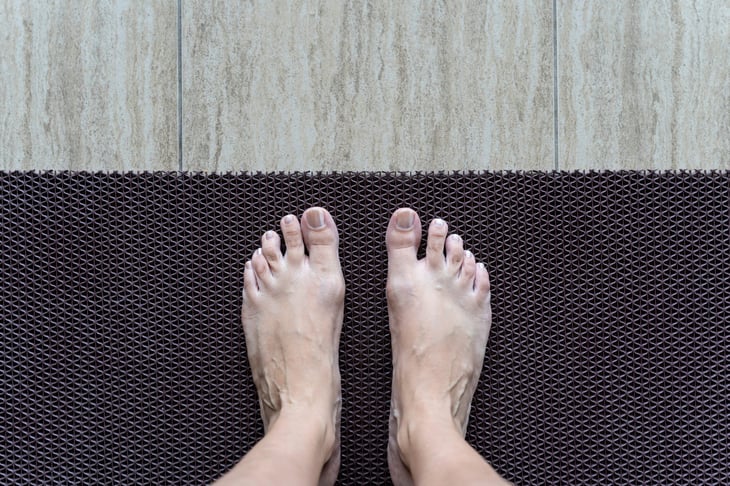
Potential cost of this upgrade: $6 to $12
Slipping on a wet bathtub or shower floor is a big danger for anyone, but for elders, especially.
An Amazon search for “bath mats for seniors” finds a variety of products.
Mats used inside the tub or shower are generally made of foam or plastic and come with floor-gripping suction cups.
For dry bathroom floors, choose bath mats and smaller rugs with undersides that reliably stick to or grip the floor to promote stability.
Don’t choose a mat by price alone. Stability and function are critical and poorly made mats can be a tripping hazard. A funky, old tub mat whose suction cups don’t work can be worse than useless.
Make sure that you can return any mat that you buy. Ordering online is helpful when user reviews are shown. Or look for mats that you can inspect in the store.
Weighted or magnetic shower curtain
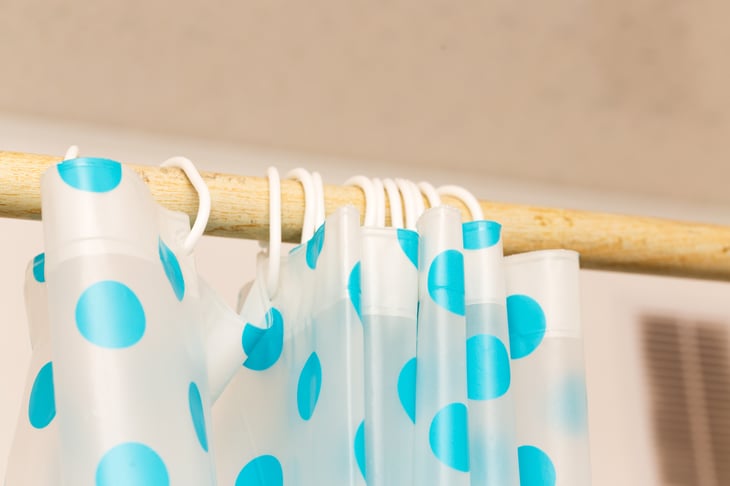
Potential cost of this upgrade: $14 to $35
If you’ve ever become entangled in a shower curtain you’ll appreciate the genius of a shower curtain whose hem is held down by weights or magnets that let the curtain know its place. It stays right where it should, preventing water from dripping on the floor or flying around the bathroom.
Grab bars
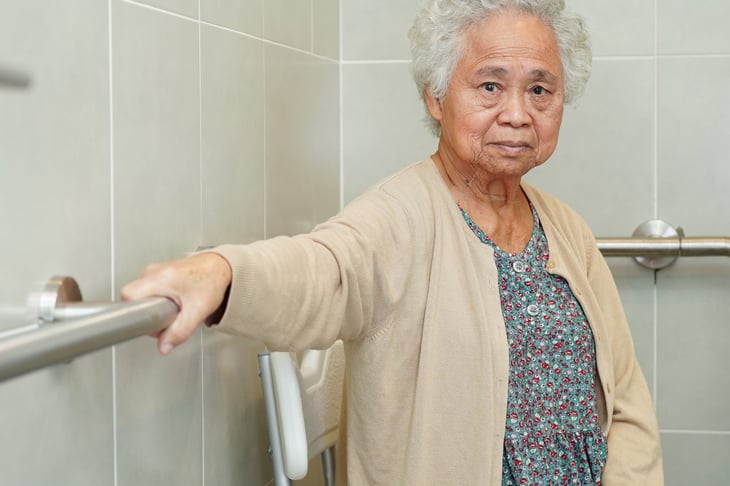
Potential cost of this upgrade: $25 to $50 plus labor
Grab bars — installed on a wall or horizontal surface, help upgrade the safety of a bathroom for elders by supporting your weight. You can use grab bars to:
- Lower yourself onto a seat, bench or toilet or into the tub;
- Pull yourself up to a standing position;
- Enter or exit a shower or tub safely.
Some grab bars can be bought inexpensively and affixed by suction to a shower or tub wall. Others must be bolted to studs behind bathroom walls.
Delta even makes a toilet paper dispenser and towel racks that double as grab bars. Amazon has 12-inch grab bars for $17.
As with any product you’ll depend on for safety or health, research the purchase thoroughly. Read user reviews and articles. Watch YouTube installation guides to make certain you’ll be able to attach grab bars securely and safely, or get professional help.
Hand-held shower head
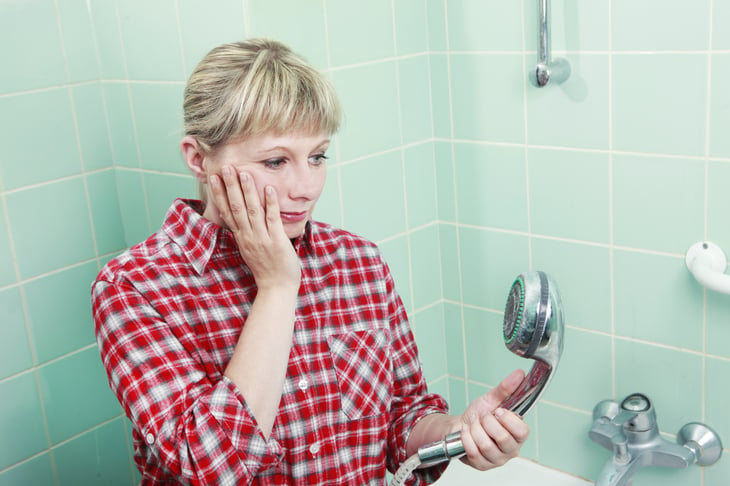
Potential cost of this upgrade: From $27 to $400 and up, plus installation
A hand-held shower head gives you more control and safety, bringing the shower head closer to your body so you don’t need to reach.
Rather than standing under a stream of water, you hold the shower head in your hand as you bathe, shampoo or shave.
Toilet upgrades
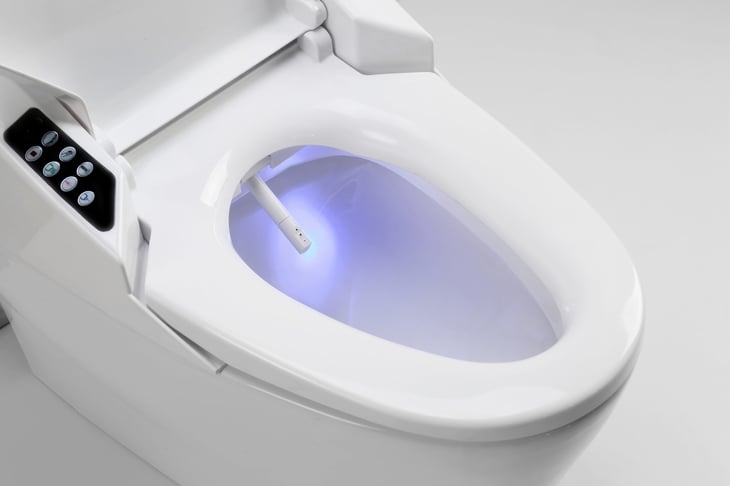
Potential cost of this upgrade: $33 and up, plus labor
What, you may wonder, is a bidet? It’s not a safety feature, but it can make using the toilet more comfortable.
A more-standard plumbing fixture in European homes, a bidet is a free-standing piece of plumbing equipment used to clean yourself with water after using the toilet. Keeping clean this way is a nicety when aging in place.
Increasingly, in the U.S., it’s possible to find bidet toilets and bidet functions built into toilets. A heated toilet seat and a warm water wash are typically part of the package.
Kohler, for one, sells free-standing smart toilets with cleaning functions priced from under $3,000 to $6,000 and well beyond.
You don’t need a pricey toilet, though, to enjoy the functionality of a bidet. Toilet seats with bidet features are cheaper, although not all feature the warm water and heated seats typical of the more-expensive models.
Wirecutter, reviewing bidet toilet seats and “washlet” toilet attachments, recommends products with various features that can cost as little as $33, over $700 or somewhere in between.
Beyond comfort, safety on the toilet is most important. Safety is enhanced with a toilet seat extender and a grab bar. An extender raises the height of your toilet’s seat, letting you stand up more easily and — crucially — with stability.
Look for toilet seat extenders at hardware and big box stores. At Home Depot they start at around $55.
Shower bench
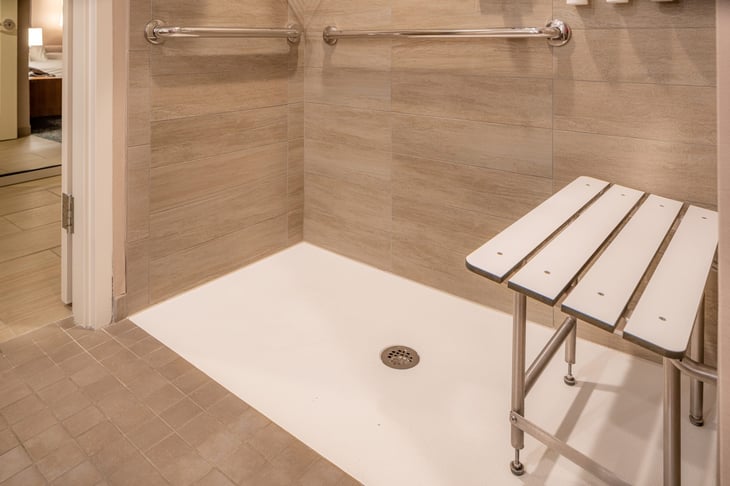
Potential cost of this upgrade: Many cost under $50
Why not sit down in the shower to safely bathe, shave and wash your hair?
Lightweight, utilitarian, safety-minded shower benches and stools have stable legs and non-slip feet.
You may prefer a handsome bench made of high-density polyethylene (HDPE) or one of bamboo or teak.
Easy-reach shelving
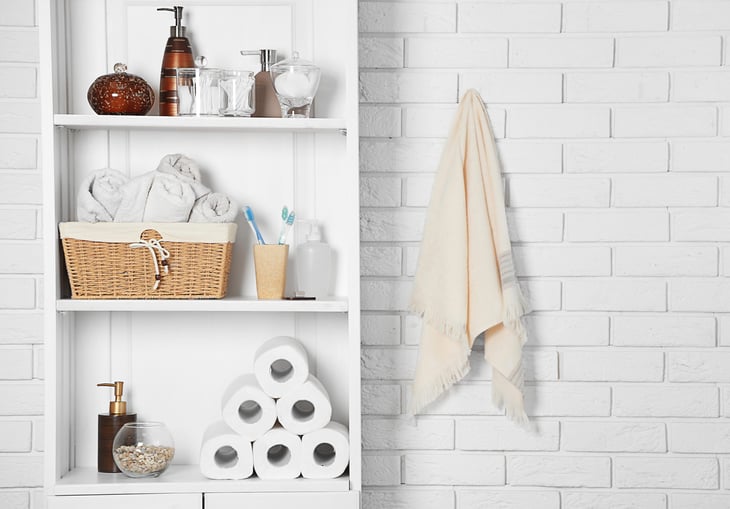
Potential cost of this upgrade: Pull-out shelf inserts run from $100 to several hundred dollars, plus labor.
The natural tendency to reach too far invites falling.
When planning your bathroom for old age, remind yourself that reaching too high or too low are difficult and maybe dangerous for elders. At least 95% of hip fractures are due to falling — usually by falling sideways, according to the Centers for Disease Control.
So, keep bathroom items you need within easy reach. Bring overhead shelves and cabinets down 3 inches from the usual height, advises Aging in Place, when discussing kitchen upgrades.
It’s harder to raise shelves from below. But, if your budget allows, you can add pull-out shelves. These are inserts that pull right out of the cabinet to meet you, rather than forcing you to stoop and reach. If pull-out shelves are too pricey, just ignore your lowest shelves and use only the ones that are easy to reach.
Faucets with levers, touch or motion sensors
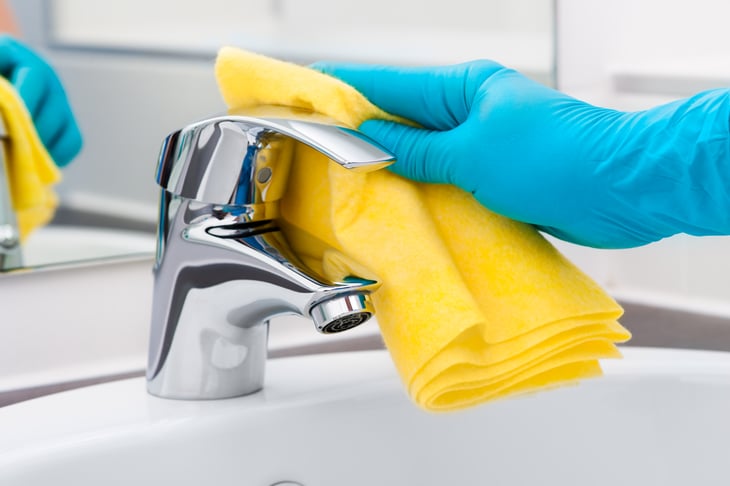
Potential cost of this upgrade: $200 to $600 or more
Lever handles are a much-appreciated upgrade for those with arthritic hands.
Instead of pinching a faucet spigot to turn it on and off, you can grip a lever with your entire hand, making the job less painful.
An automated, motion-sensor faucet makes using the tap even simpler.
And there are other advantages.
“Equipping your sinks with automatic faucets keeps the germs at bay and helps reduce the risk of spreading germs to everyone else who uses the same sink.”
Touchless faucets save water and are easily cleaned since their construction is simple and the parts are smooth.
Curbless shower
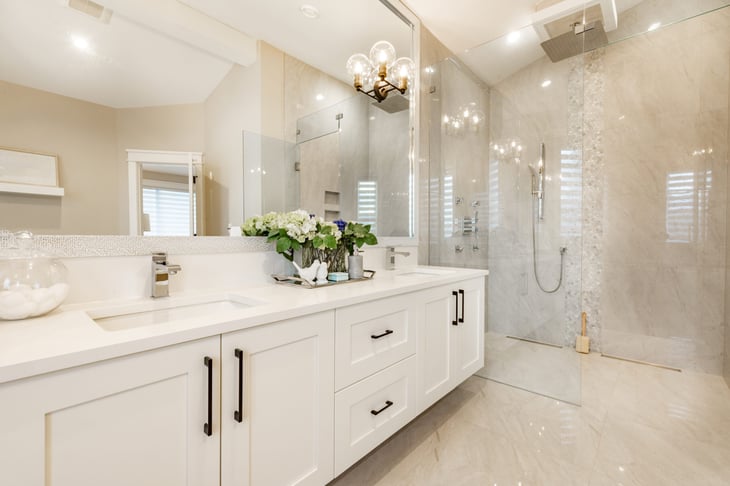
Potential cost of this upgrade: Average cost is $6,700 plus labor
A curbless shower (sometimes called a walk-in shower) is just what it sounds like: All barriers, even the door, are removed so that someone using a walker or other mobility aid can slide, shuffle or roll right into the shower without fear of tripping on a threshold. The shower floor slopes gently to the drain.
You’ll find a wide range of options and approaches to curbless showers, says This Old House, explaining that:
“Due to the wide range of options, the cost of a walk-in shower spans from $1,000-$15,000, with an average cost of $6,700.”





Add a Comment
Our Policy: We welcome relevant and respectful comments in order to foster healthy and informative discussions. All other comments may be removed. Comments with links are automatically held for moderation.